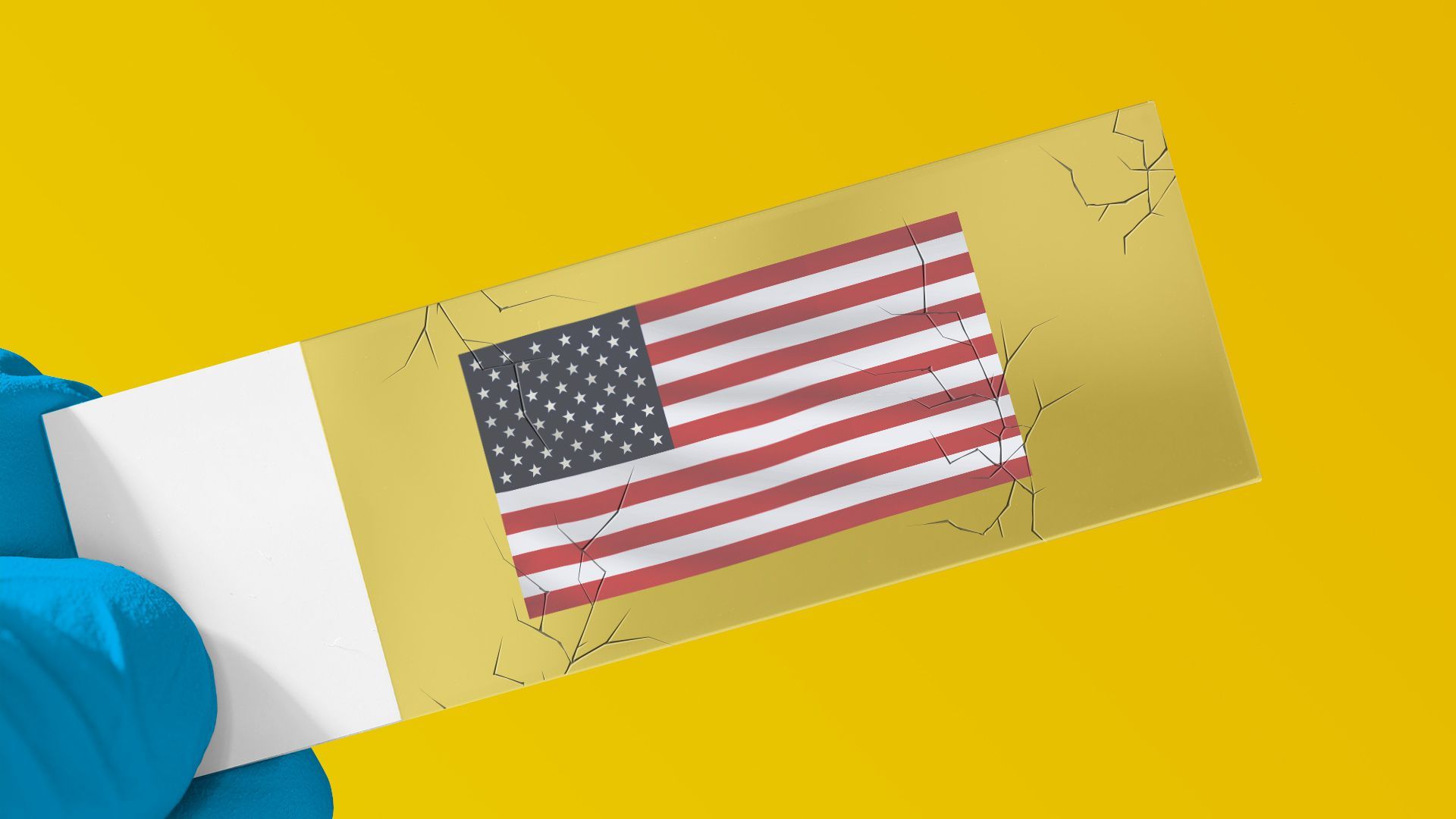how politicians in usa faked health
Illustration: Aïda Amer/Axios
Crafting successful public health measures depends on the ability of top scientists to gather data and report their findings unrestricted to policymakers.
State of play: But concern has spiked among health experts and physicians over what they see as an assault on key science protections, particularly during a raging pandemic. And a move last week by President Trump, via an executive order, is triggering even more worries.
What's happening: If implemented, the order creates a "Schedule F" class of federal employees who are policymakers from certain agencies who would no longer have protection against being easily fired — and would likely include some veteran civil service scientists who offer key guidance to Congress and the White House.
- Those agencies might handle the order differently, and it is unclear how many positions could fall under Schedule F — but some say possibly thousands.
- "This much-needed reform will increase accountability in essential policymaking positions within the government," OMB director Russ Vought tells Axios in a statement.
What they're saying: Several medical associations, including the Infectious Diseases Society of America, strongly condemned the action, and Democrats on the House oversight panel demanded the administration "immediately cease" implementation.
- "If you take how it's written at face value, it has the potential to turn every government employee into a political appointee, who can be hired and fired at the whim of a political appointee or even the president," says University of Colorado Boulder's Roger Pielke Jr.
- Protections for members of civil service allow them to argue for evidence-based decision-making and enable them to provide the best advice, says CRDF Global's Julie Fischer, adding that "federal decision-makers really need access to that expertise — quickly and ideally in house."
Between the lines: Politics plays some role in science, via funding, policymaking and national security issues.
- The public health system is a mix of agency leaders who are political appointees, like HHS Secretary Alex Azar, and career civil servants not dependent on the president's approval, like NIAID director Anthony Fauci.
- "Public health is inherently political because it has to do with controlling the way human beings move around," says University of Pennsylvania's Jonathan Moreno.
Yes, but: The norm is to have a robust discussion — and what has been happening under the Trump administration is not the norm, some say.
- "Schedule F is just remarkable," Pielke says. "It's not like political appointees editing a report, [who are] working within the system to kind of subvert the system. This is an effort to completely redefine the system."
- The Center for Strategic and International Studies' Stephen Morrison says that the administration has been defying normative practices, including statements denigrating scientists, the CDC and FDA.
The big picture: Public trust in scientists, which tends to be high, is taking a hit, not only due to messaging from the administration but also from public confusion over changes in guidance, which vacillated over masks and other suggestions.
- Public health institutions "need to have the trust of the American people. In order to have the trust of the American people, they can't have their autonomy and their credibility compromised, and they have to have a voice," Morrison says.
- "If you deny CDC the ability to have briefings for the public, and you take away control over authoring their guidance, and you attack them and discredit them so public perceptions of them are negative, you are taking them out of the game and leaving the stage completely open for falsehoods," he adds.
- "All scientists don't agree on all the evidence, every time. But what we do agree on is that there's a process. We look at what we know, we decide what we can clearly recommend based on what we know, sometimes when we learn more, we change our recommendations, and that's the scientific process," Fischer says.
What's next: The scientific community is going to need to be proactive on rebuilding public trust in how the scientific process works and being clear when guidance changes and why it has changed, Fischer says.
 |
|



